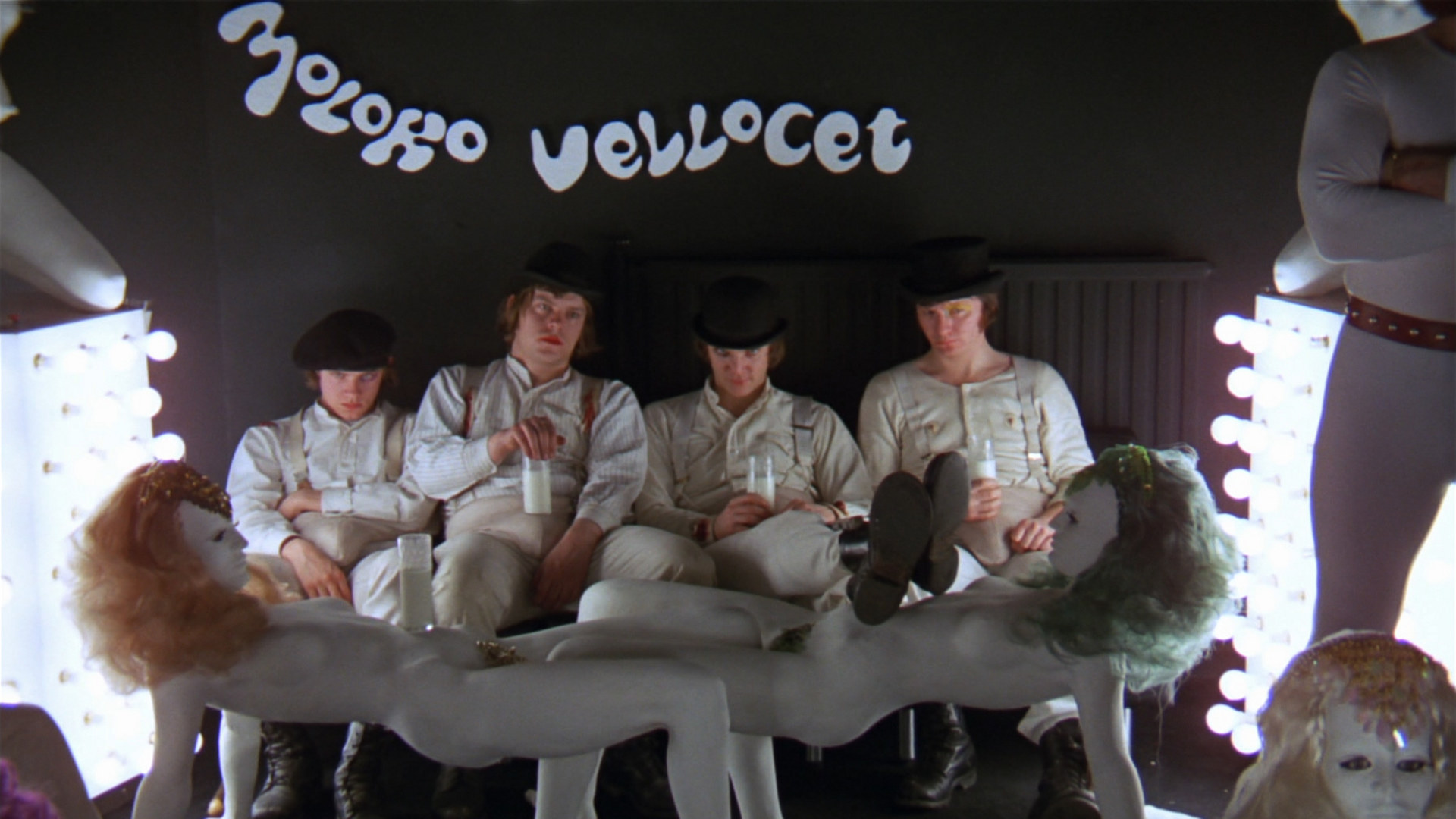
One of Stanley Kubrick’s classics is A Clockwork Orange, a film that has a fearful reputation even 40 years later as one of the most daring and bold movies ever made. The tale of the gang leader whose pastimes include rape, ultra-violence and beethoven was never going to be easy viewing. However, nobody but Kubrick could tell it in a way that says so much, visually and semantically about such troubling issues as psychopathy, the future of society, and ethics in psychological treatment as well as such daring philosophical issues as answering the question “What does it mean to be human?”

This legendary examination is wonderfully thought-provoking, but on a personal level what struck me the most was not the insanity & absurdity of the films protagonist and narrator, rather, it was the insanity & absurdity of the people and world around him that was so provocative. By this I mean that in this film, there was no voice of reason or any sense of sanity or logic. From Alex DeLarge’s (Malcolm McDowell) parents who neglected and ignored him, to the doctors who mistreated him and the minister who visited him in chase of personal, political gain and also the policemen who abused him on different occasions throughout. In fact, I felt it so indicative of certain theories about modern society that, for example, the policemen who arrest Alex treat him in the same manner that he treated his own victims, proclaiming an abhorrent image of the policing system as well as of the crimes committed.

Nobody acts within the boundaries of every day logic, and for me, this was highly indicative of the legendary literature of both Franz Kafka and Fyodor Dostoyevsky in their works such as ‘The Trial’ and ‘The Double’ respectively. What these classic books achieve is proclaiming a statement about society through the portrayal of absurdity and illogical behaviour from those surrounding the main characters. For example, in ‘The Double’, the protagonist, Yakov Petrovich Golyadkin, finds himself tortured by the introduction of his doppelganger who is favoured to him in every way by the world around him, from women, to friends, to employers. This classic story provides an inverting sense of societal claustrophobia that I would argue is adopted by Kubrick in ‘A Clockwork Orange’. By this I mean that despite Alex’s being ‘cured’ he is still at the manipulative fingertips of the world around him, eventually in those of the minister who uses his case to meet political ends. The main difference between these different articles are of course the much greater confused role of justice, or rather, injustice to determine the treatment of the main character. It also appears to be somewhat Kafkaesque in its generic sense of the term that it is dystopian, futuristic and a somewhat horrific world that Alex lives in. A rather subtle indication of this perhaps, could be in the horribly fluorescent coloured hair of some of the women in the film, provides us with an understated disposition that this world is bizarre and distasteful.

In conclusion, as one of the most controversial and highly debated films of the 20th century, ‘A Clockwork Orange’ is a wonderfully honest and brusque study and statement about the nature of the mentally ill and their image projected into the world around them. I give it a 7/10.
@ianmperrin
